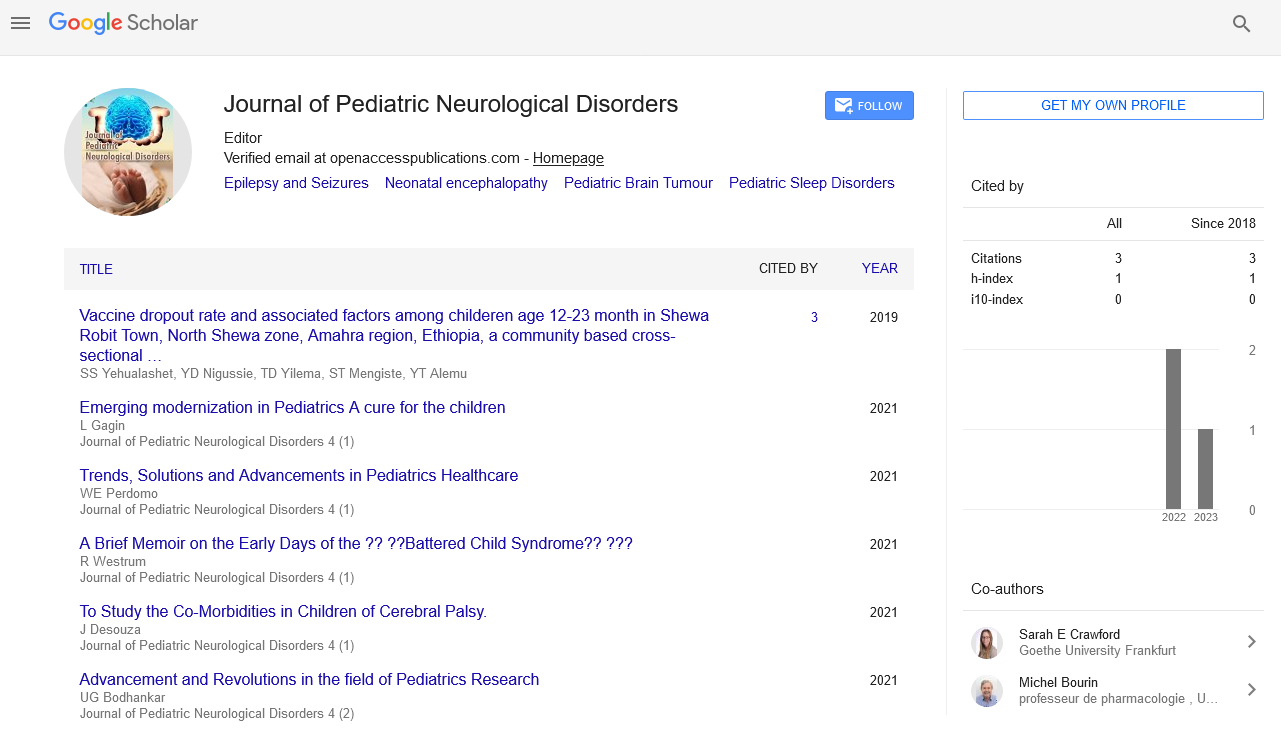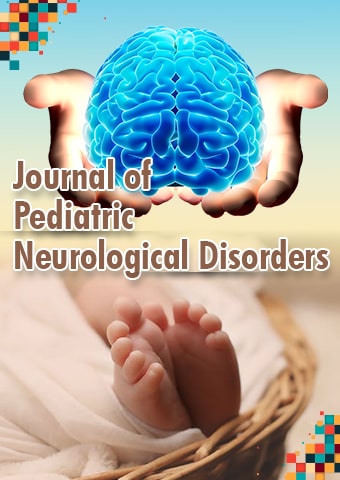Commentary - Journal of Pediatric Neurological Disorders (2022) Volume 5, Issue 3
Role of Vaccine Therapy in Cancer: Biology and Practice
Aisha Sehari*
Tripoli University, Faculty of Medicine, Tripoli, Libya
Received: 02-Jun-2022, Manuscript No. pnn-22-421011; Editor assigned: 06-Jun-2022, PreQC No. pnn-22- 421011(PQ); Reviewed: 20-Jun-2022, QC No. pnn-22-421011; Revised: 23-Jun-2022, Manuscript No. pnn-22- 421011(R); Published: 30-Jun-2022, DOI: 10.37532/pnn.2022.5(3).52-53
Abstract
Vaccines constitute a potential new therapeutic approach for a range of human cancers. Unlike other therapeutics, vaccines initiate a dynamic process in the host immune system that can be exploited with subsequent therapies. Indeed, recent preclinical and clinical studies with cancer vaccines have provided evidence that this unique therapeutic modality should lead to consideration of new paradigms in both clinical trial design and endpoints and in combination therapies. The present article reviews and sets out a rationale for these new paradigms, with a focus on prostate cancer.
Keywords
cancer • conventional therapies • RECIST • T-cell transfer techniques
Introduction
Cancer vaccines initiate a dynamic process by activating the host’s own immune system—an approach that differentiates them from other, more conventional therapies. This process could potentially influence the evaluation of patients’ responses to initial therapy and to subsequent therapies post vaccination. No therapeutic cancer vaccine has yet been approved by the U.S. Food and Drug Administration (FDA), but the field of cancer vaccines is currently in a state of active preclinical and clinical investigation [1]. Recent preclinical and clinical studies with cancer vaccines have provided evidence that this unique therapeutic modality should lead to consideration of new paradigms in both clinical trial design and endpoints and in combination therapies. Cancer vaccines may well ultimately be employed for the therapy of many types of cancer A recent article seven characterized stable disease and longer-than-expected survival as “soft criteria” in the evaluation of cancer vaccines as compared with the “standard” or RECIST criteria of measuring tumor volume [2]. In contrast, the tumor volume reduction observed in some melanoma patients treated with adoptive T-cell transfer techniques was proposed as a modality that satisfies RECIST criteria. The findings arising from the use of antigenspecific adoptivetransfer T-cell techniques are important and extremely innovative, and the therapy may well benefit certain subsets of patients. However, consideration must be given to the fact that, over the course of 20 years [3].
Description
In our opinion, cancer vaccines will become the therapeutic modality in which greater emphasis will be placed on “patient response” than on “tumor response,” two phenomena that are not always mutually inclusive. Standardization of response criteria is of course critical for any given clinical trial; however, it must be emphasized that the use of only one criterion for all therapeutics, cancer types, and disease stages can be misleading. In 2000, an international committee formulated the Response Evaluation Criteria in Solid tumors (RECIST) a means of measuring tumor response [4]. The use of RECIST criteria has served the oncology community well in evaluating passive therapeutic modalities such as chemotherapeutic agents and radiation therapy. With the advent of new targeted therapies, including cancer vaccines, the sole use of RECIST criteria has now been called into question by several cooperative groups, among others. An excellent example is found in the evaluation of sorafenib (Nexavar: Onyx Pharmaceuticals, Emeryville, CA, U.S.A.) in clinical trials of patients with advanced renal cell carcinoma. In those trials, increases in patient survival were seen with low [5].
Conflict of Interests
None
Acknowledgments
None
References
- Therasse P, Eisenhauer EA, Verweij J. RECIST revisited: a review of validation studies on tumour assessment. Eur J Cancer. 42, 1031–1034 ( 2006).
- Tuma RS. Sometimes size doesn’t matter: reevaluating RECIST and tumor response rate endpoints. J Natl Cancer Inst. 98, 1272–1274 (2006).
- Gore ME, Escudier B. Emerging efficacy endpoints for targeted therapies in advanced renal cell carcinoma. Oncology (Williston Park) 20, 19–24 (2006).
- Hoos A, Parmiani G, Hege K et al. A clinical development paradigm for cancer vaccines and related biologics. J Immunother 30, 1–15 (2007).
- Escudier B, Eisen T, Stadler WM et al. Sorafenib in advanced clear-cell renal-cell carcinoma. N Engl J Med, 356, 125–34 (2007).
Indexed at, Google Scholar, Crossref
Indexed at, Google Scholar, Crossref
Indexed at, Google Scholar, Cross ref

